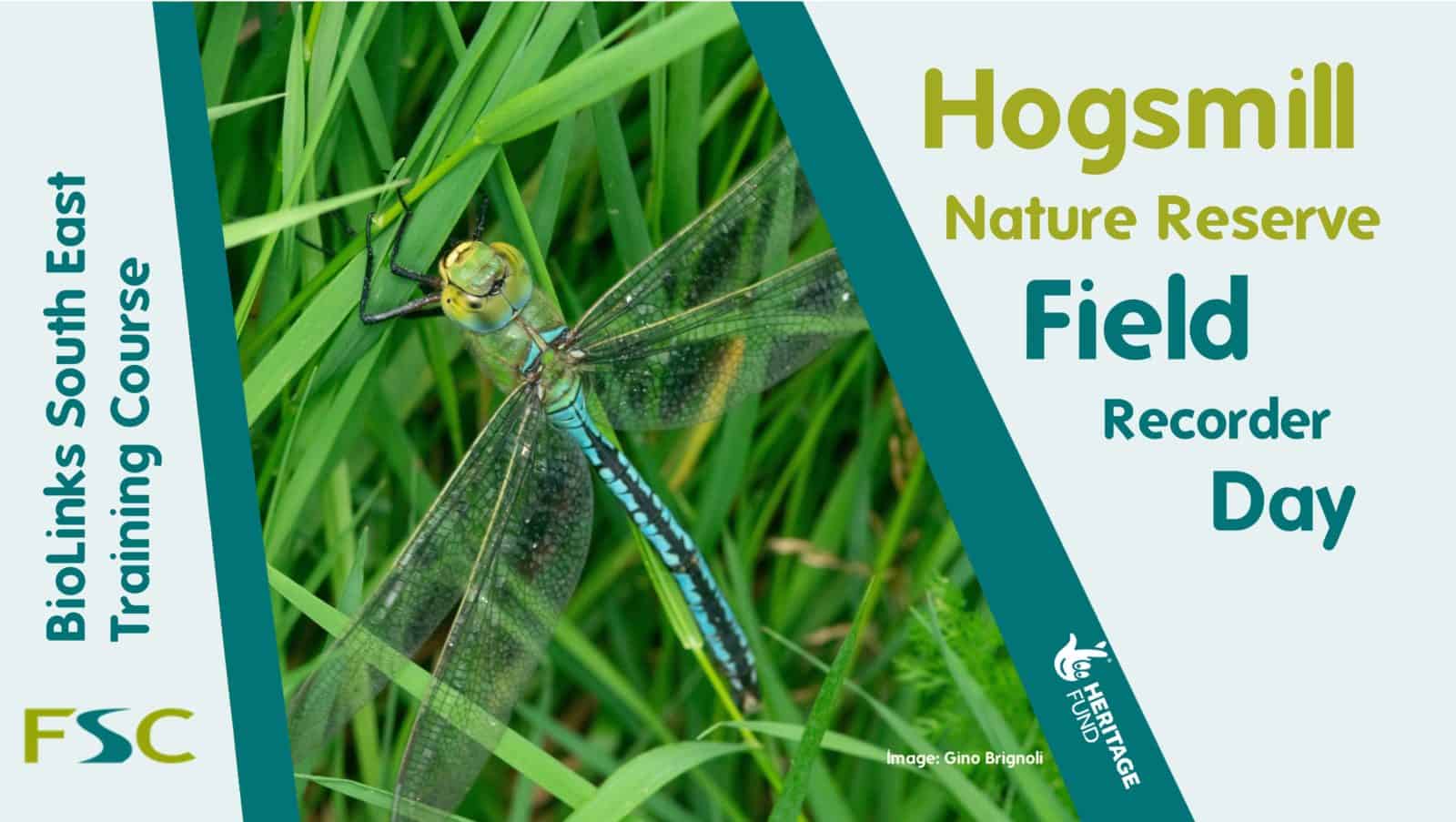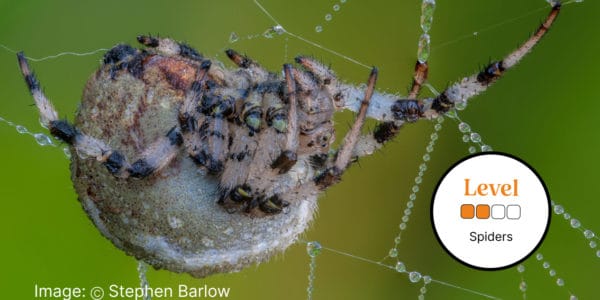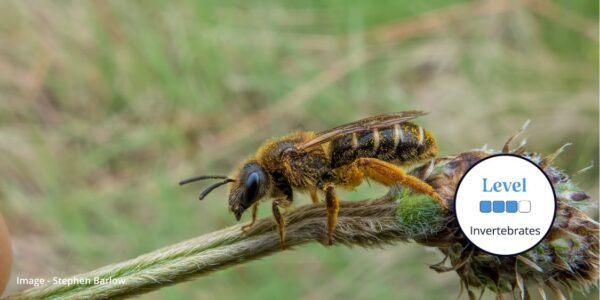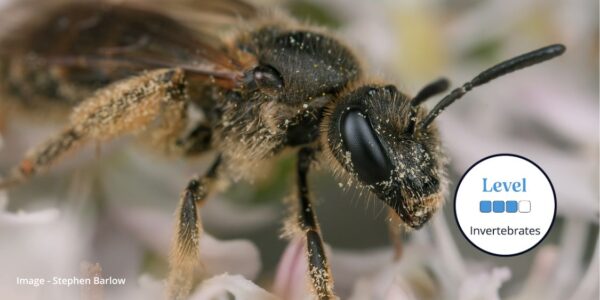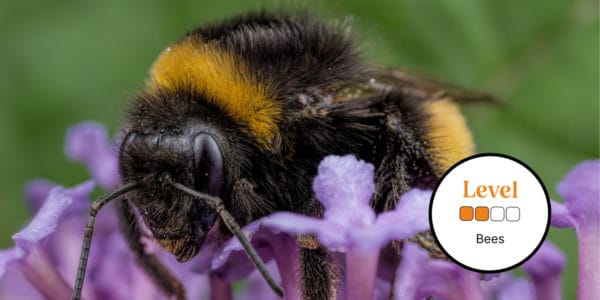Join like-minded people with an interest in field recording for a day identifying and surveying for both terrestrial and freshwater invertebrates in an informal environment at Hogsmill Nature Reserve, Rose Walk Local Nature Reserve and Elmbridge Meadows Local Nature Reserve. These sites along the chalk stream of Hogsmill River and its banks feature woodland, scrub and open grassy rides. Naturalists of all levels (from beginner to expert) will be able to share their experiences with peers and help one another improve knowledge and build confidence in biological recording.
The day will involve using a range of techniques to survey for and collect a variety of invertebrate specimens, some of which will be preserved on the day for identification at subsequent Volunteer ID Days. These specimens will help us to build up a species list for the site, before becoming part of a teaching collection used for our other courses and volunteer days.
All records collected will be added to iRecord in order to share our findings with the site managers, Local Environmental Record Centre and relevant national recording schemes and societies.
What will the day involve?
- Practical experience using a variety of methods to survey and sample terrestrial and freshwater invertebrates
- Practical experience in collecting and preserving specimens
- A chance to meet fellow like-minded people from a range of different disciplines
- Access to field equipment with support and guidance from members of the FSC BioLinks project team
It’s free to join in, however, you must be at least 18 years old and space is limited so booking is essential.
We will provide tea and coffee, but please bring your own cup, lunch, and any other refreshments you may require!
Please note that this event will involve individuals collecting, preserving and killing invertebrate specimens for identification purposes in order to assist us in generating a site species list.
Covid Measures
In order to keep our customers and staff safe we ask that anyone attending our centres:
- wears a face covering when in shared indoor space (unless exempt).
- maintains social distancing.
- cleans their hands regularly.
- takes a Covid-19 test before they arrive.
Example Timetable
- Please arrive in time for the course to start promptly at 10:00 am.
- Refreshments will be available from 9.45 am.
- The Field Recorder Day will end at 4:00 pm.
What's Included
- Practical experience using a variety of methods to survey and sample terrestrial and freshwater invertebrates
- Practical experience in collecting and preserving specimens
- A chance to meet fellow like-minded people from a range of different disciplines
- Access to field equipment with support and guidance from a member of the FSC BioLinks project team
Bursaries and Subsidies
FSC BioLinks
FSC BioLinks is an exciting project for FSC in the South East and West Midlands, bringing together existing volunteers with skills in biological recording and identification, and new volunteers.
This project provides subsidised training courses, learning opportunities and digital tools focussed on invertebrate identification for anyone involved or interested in biological recording, to build and strengthen the community.
Invertebrates provide us with many useful ecosystem services, like pollination and decomposition, which we cannot survive without but their numbers are declining. Few people know how to identify or record invertebrates meaning there is a lack of data.
We are delighted to have been awarded a grant of £1.23 million from the National Lottery Heritage Fund for this project.
Before You Attend
Getting to Hogsmill Nature Reserve
Kingston upon Thames KT1 3BW
By car: Lower Marsh Lane, Kingston upon Thames (closest postcode KT1 3BW).
By train: The nearest train station is Berrylands. The reserve is a 5-minute walk from there.
By bus: You have a choice: K1, K2 or K4. The reserve is approx 20-minute walk from each
What to bring
- Notebook and pencil
- Lunch
- Suitable clothing for the weather and appropriate footwear for walking.
- Any personal field equipment you have such as a hand lens and pooter (equipment will be provided for those that need it).
- Your own cup for teas and coffees
Please note that this event will involve individuals collecting, preserving and killing invertebrate specimens for identification purposes in order to assist us in generating a site species list.
This BioLinks course has aspects that will be taught outdoors with walking to field sites over uneven ground. No special preparation is required providing you are used to gentle exercise. If you have any concerns or questions about access or the activities involved, please get in touch.
There will be a member of staff with first aid training and access to a first aid kit on site. If you have special medical requirements please let us know as soon as possible so we can plan the course.
Sorry this course has ended

